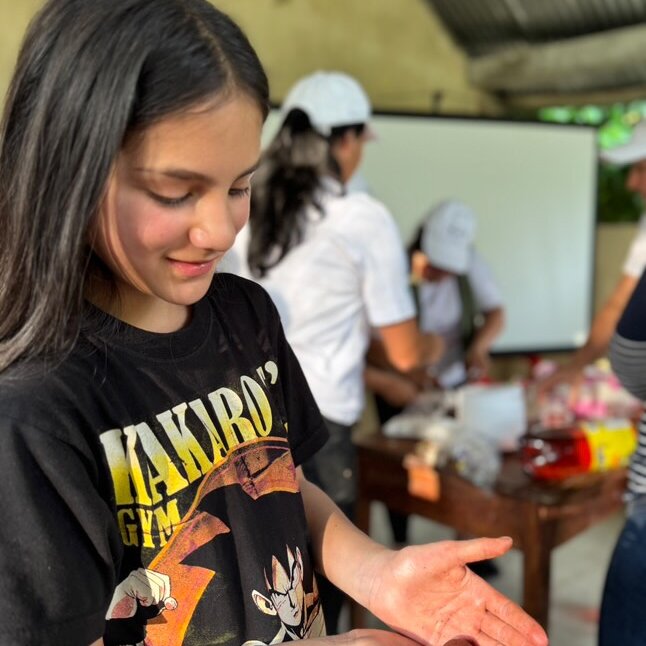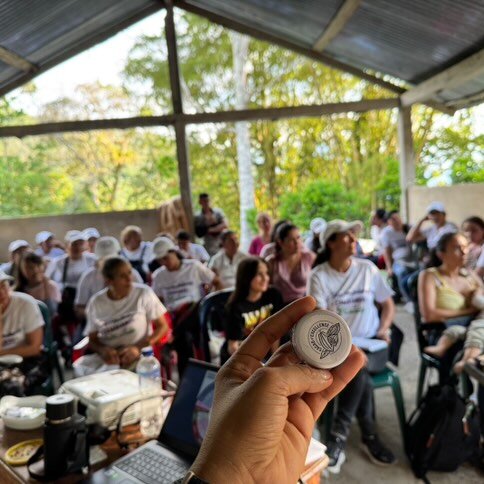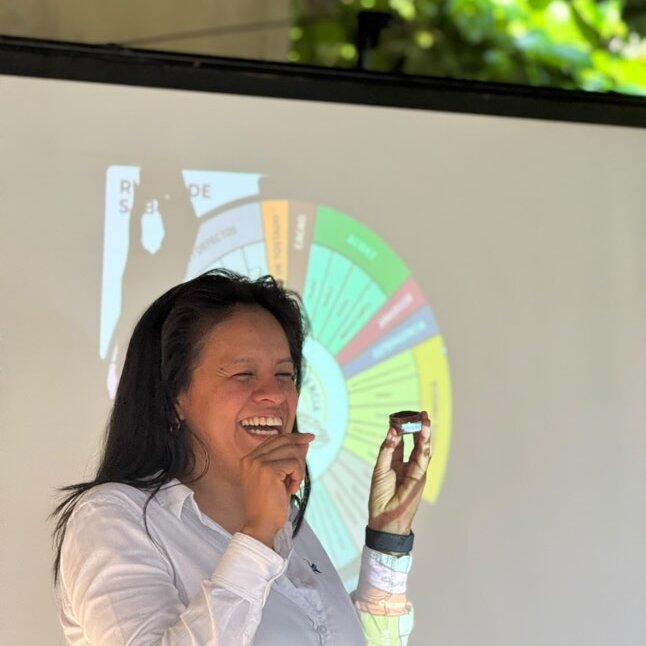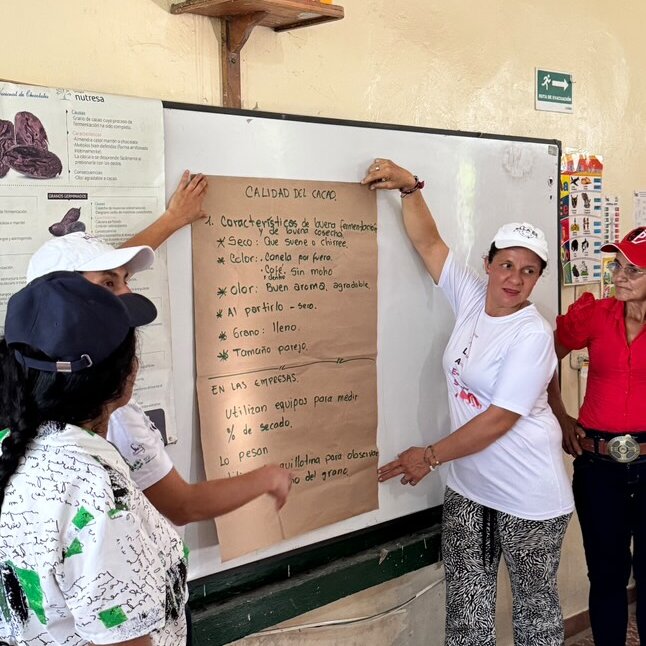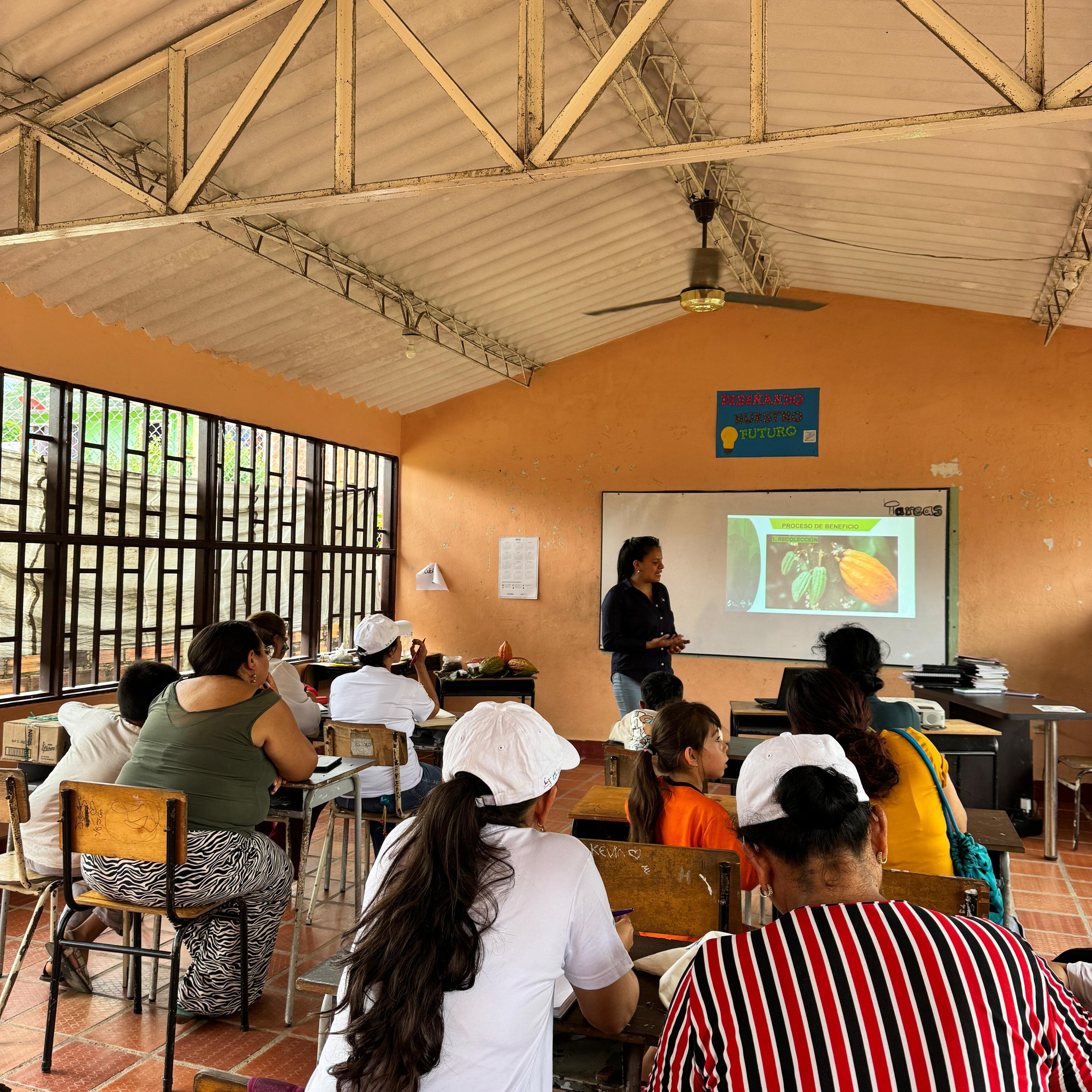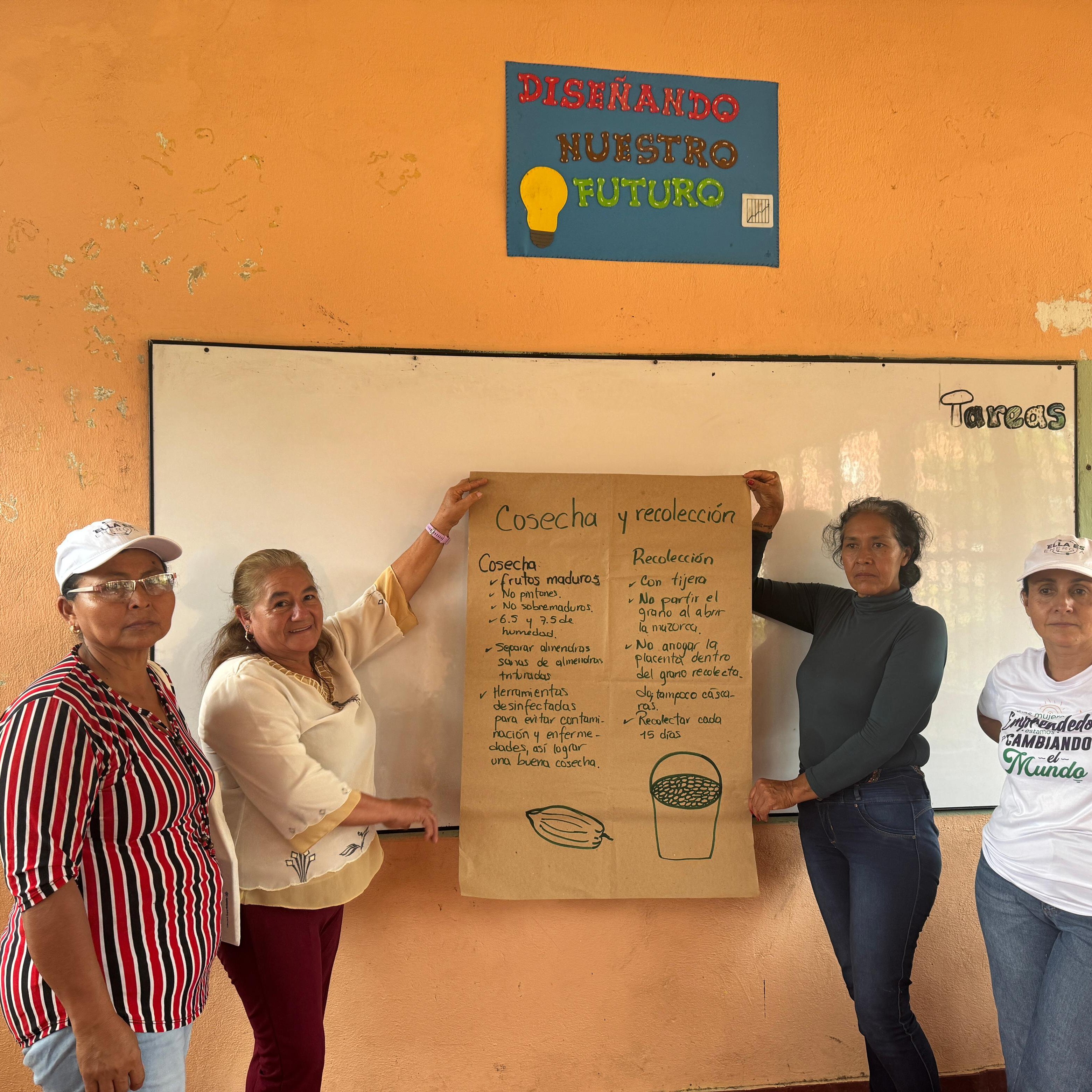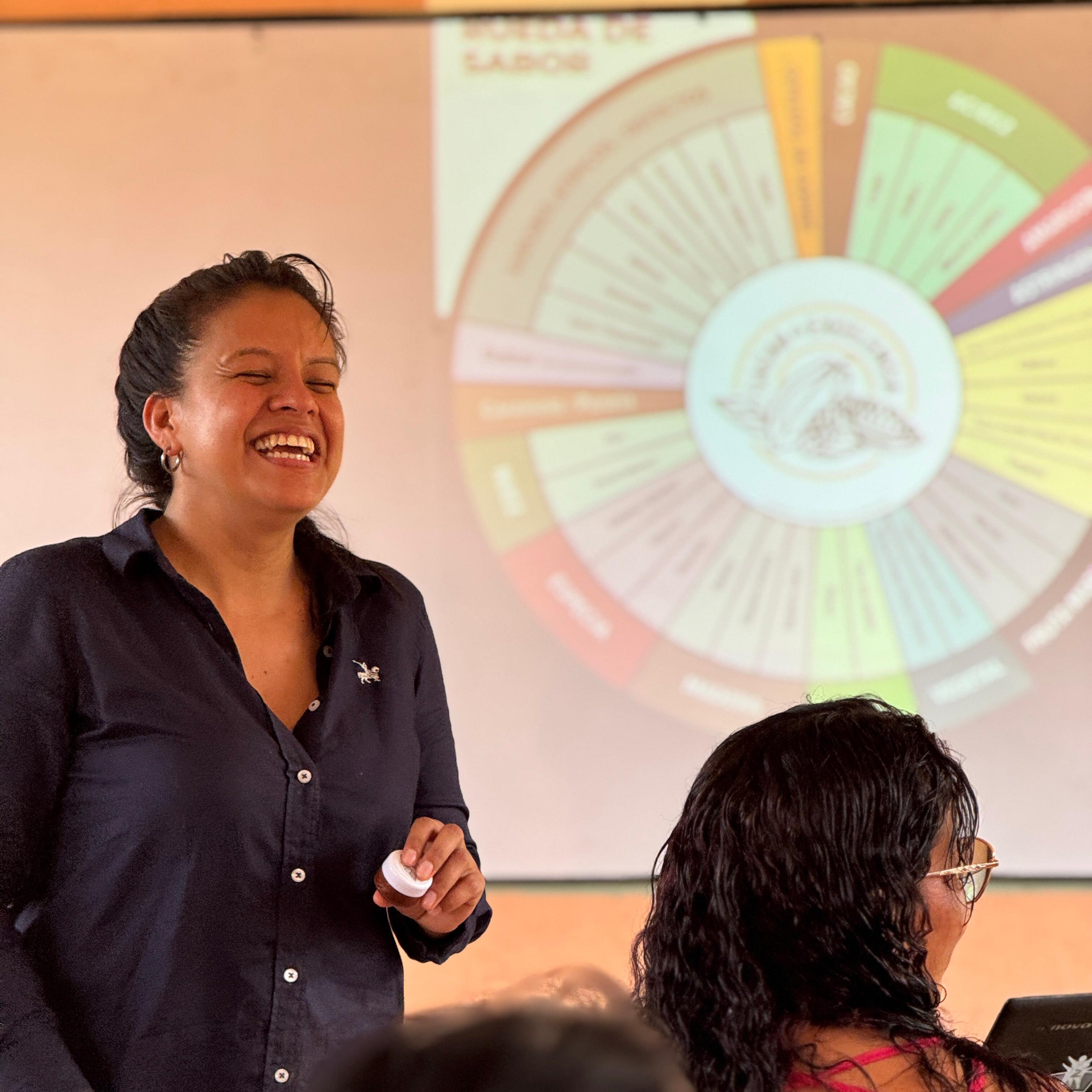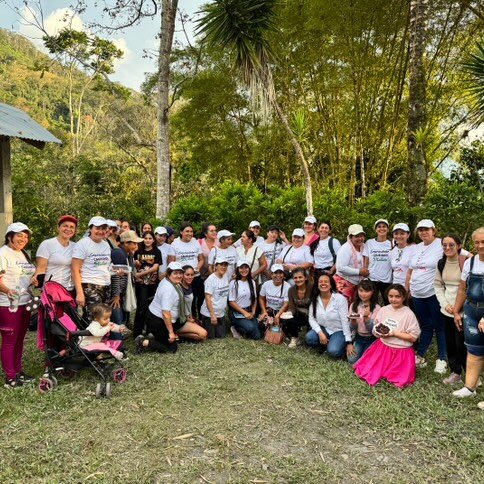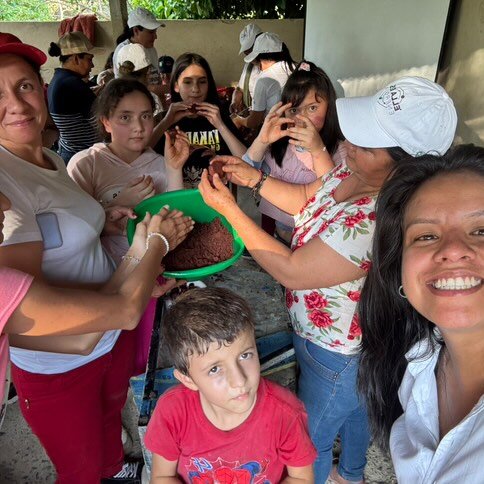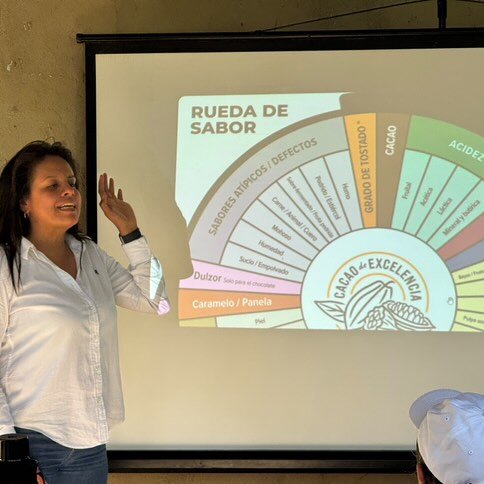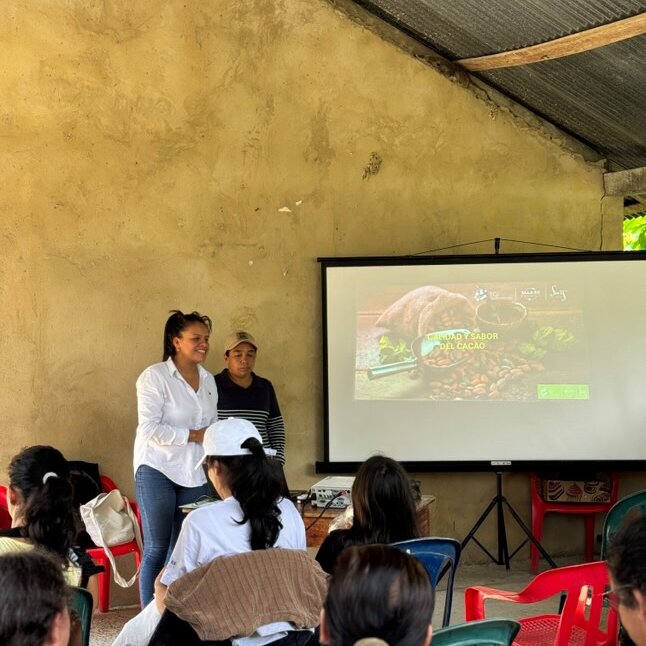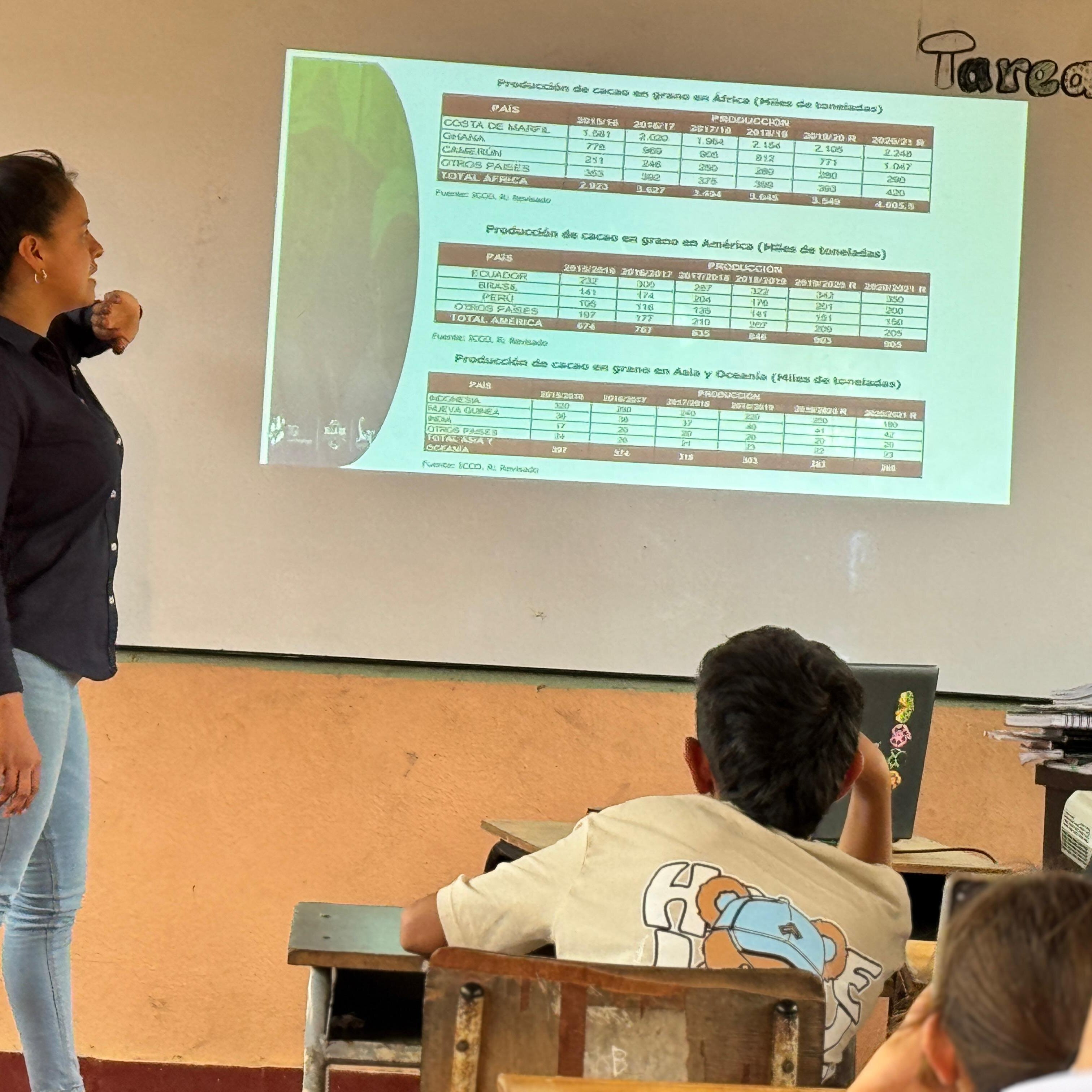La Belleza, Santander, Colombia – March 2025
Nestled in the green folds of the Colombian Andes, the municipality of La Belleza is a place where altitude, climate, and tradition meet to create some of the country’s finest cacao. Yet beyond the flavour-rich beans that grow here, something even more transformative is taking root: a movement led by women, built on knowledge, and grounded in community.
Former Cacao of Excellence training participant, Leidy Gonzalez is leading the way - extending her knowledge and Cacao of Excellence tools to local women in La Belleza.
A business manager, and cacao grower in Colombia, Leidy has spent over a decade working with the Asociación Belleza Productora de Cacao – ASOBELLCA. In this remote corner of Santander—a department that produces 40% of Colombia’s cacao—she is helping women farmers build new pathways to economic resilience and dignity through the crop that reshaped the region.
“Cacao changes our way of thinking,” Leidy says. “It changes how we see life and the land. It brings dignity to our work.”
Once heavily reliant on coca cultivation, La Belleza has shifted toward cacao as a sustainable and legal alternative that supports local economies, preserves biodiversity, and nurtures social cohesion. But cacao is more than an economic crop here—it’s a source of pride, of shared knowledge, and now, of women-led development.
Women Training Women
In recent months, Leidy has led four workshops for rural women cacao growers—two in La Belleza and two more in the nearby municipality of Florián. Each group included 52 participants, all women, eager to improve their skills in cacao cultivation, post-harvest practices, and understanding flavour and quality.
“Many of these women are heads of households,” Leidy explains. “Sharing knowledge about an ancestral, practical, and rural tradition strengthens their skills and shows them that their work in agriculture is valuable.”
Using accessible and practical training methods—including the Cacao of Excellence flavour evaluation tools and samples donated from the Cacao of Excellence Laboratory—Leidy introduces participants to basic cacao sensory analysis while reinforcing the importance of good post-harvest practices. These sessions help women farmers see their cacao not just as a commodity, but as a product of value and identity.
“When women gain access to knowledge and tools, they don’t just transform their own lives—they transform entire communities,” she says. “A woman who can direct her practical knowledge becomes a force for growth and resilience.”
The Power of a Ripple
Leidy’s ability to lead these sessions is the result of a capacity-building initiative supported by the Cacao of Excellence programme. In Rome, she participated in specialised training designed to strengthen the skills of cacao value chain professionals—equipping them to become sources of knowledge for their communities.
The approach helps build local leadership, enabling knowledge to cascade outward and reach those who need it most. Leidy embodies the success of this model: one woman trained becomes dozens of women empowered.
“I’m very happy—truly, very, very happy—to be able to share this knowledge with my community,” she says. “It’s important for the world to know what we’re doing here.”
Beyond the Bean
Cacao, in Santander, is not just a crop—it’s a catalyst. By investing in the leadership of women like Leidy, the community is strengthening its roots and expanding its future.
The spillover effects are already clear. Over 100 women farmers have now gained access to practical, applied tools and greater awareness of the diversity and quality found in cacao, through Leidy’s workshops. These are women who are better prepared to understand the diversity found in cacao, the language to describe it, and better equipped to consider new opportunities, and pass on knowledge to others.
And it doesn’t end there.
Through her example, Leidy is helping to rewrite the narrative of rural development in Colombia, to one of opportunity and pride.
“We want our community to understand the value of cacao, and how important it is in the world,” Leidy says. “And we want that value to be reflected in the lives of the women who grow it.”
From the cool highlands of Santander to the tables of specialty chocolate lovers around the globe, the story of cacao is evolving. And at its centre is a powerful truth: when farmers understand the value and flavour of their cacao, communities can flourish.
